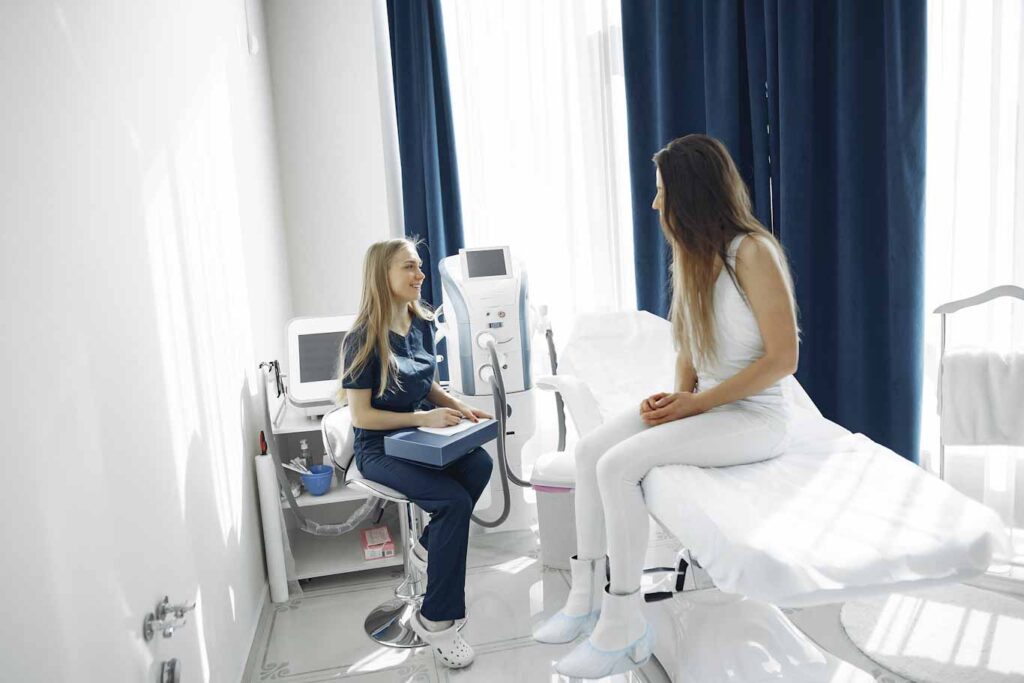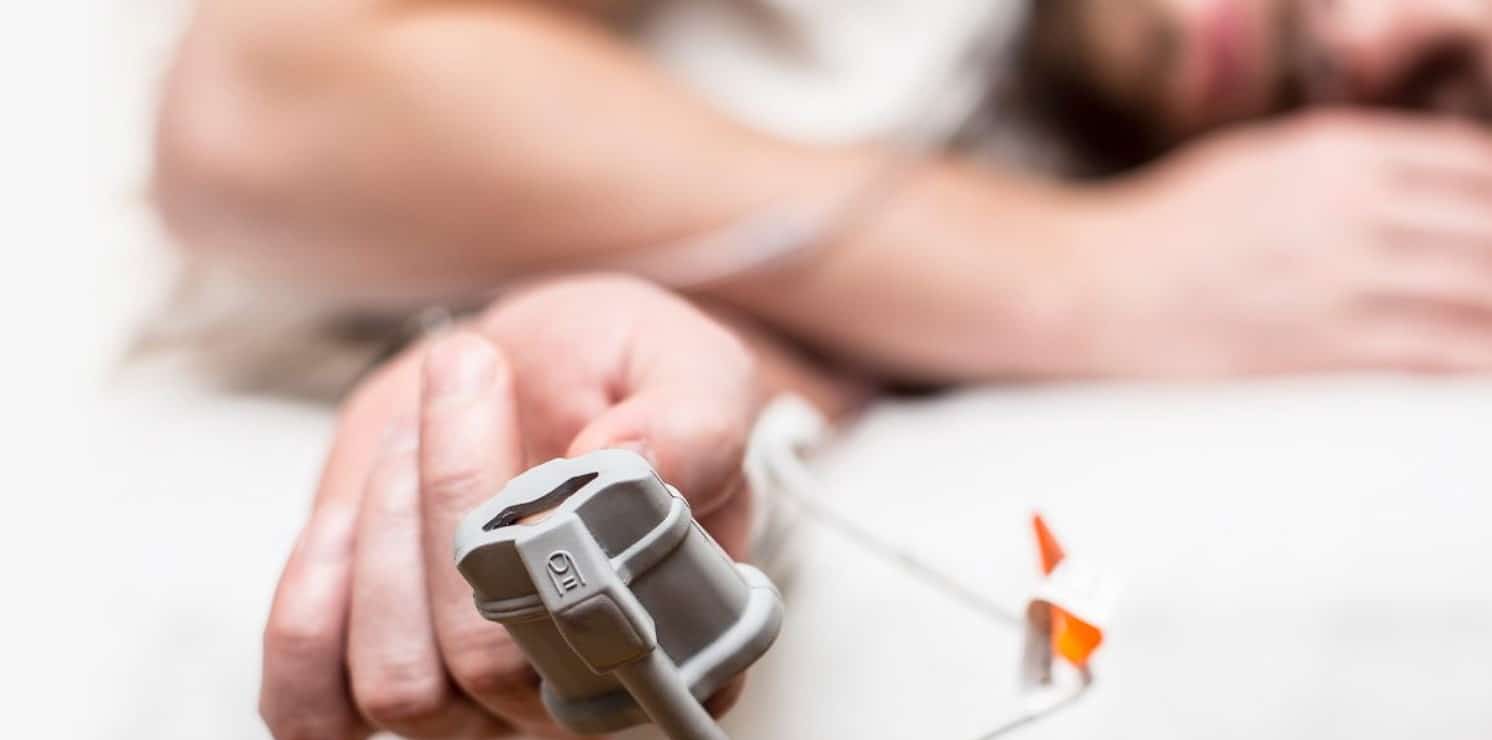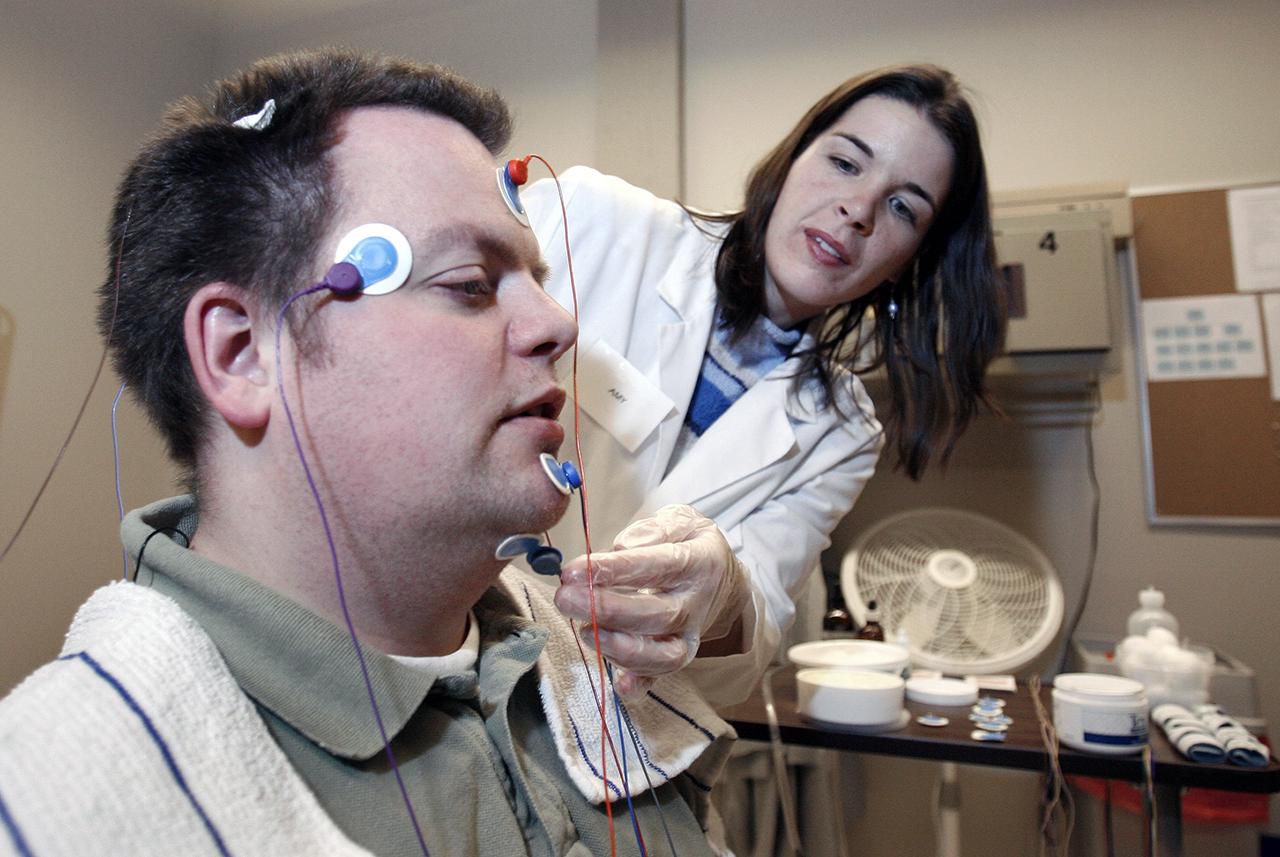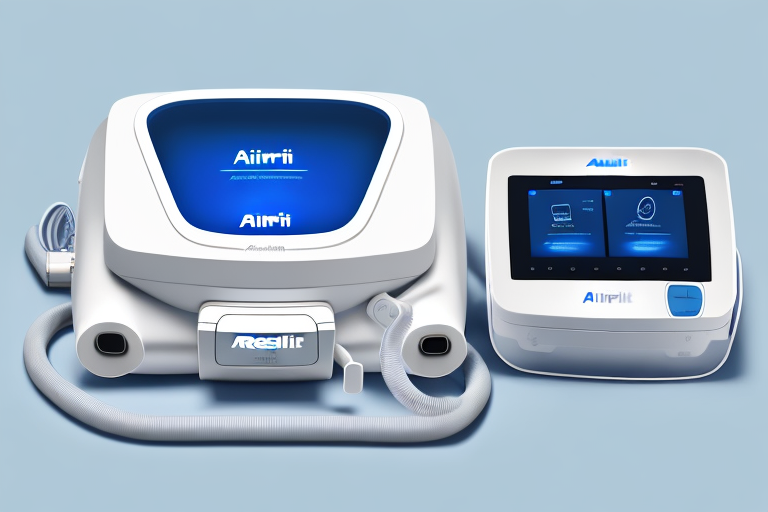A sleep study, also known as a polysomnogram, is a diagnostic test performed to evaluate sleep disorders and abnormalities. It involves monitoring various bodily functions during sleep, such as brain waves, heart rate, breathing, and eye movements. Sleep studies provide valuable information that can help healthcare providers diagnose and treat conditions like sleep apnea, narcolepsy, insomnia, and restless leg syndrome. However, before undergoing a sleep study, it’s important to understand the costs involved and how you can manage them effectively.
What is a Sleep Study?
A sleep study is a non-invasive procedure that typically takes place in a sleep center or laboratory, although some studies can be done in the comfort of your own home. During the study, small sensors and electrodes are placed on your scalp, face, chest, and legs to monitor different aspects of sleep and body functions. These sensors and electrodes are painless and do not cause any discomfort. The data collected by these devices then gets analyzed by medical professionals to diagnose sleep disorders accurately.
By understanding the breakdown of cost of sleep study associated with a sleep study, you can make informed decisions about your healthcare and budget accordingly. Remember to consult with your healthcare provider and insurance company to get a clear understanding of the costs involved and any potential coverage options. Prioritizing your sleep health is an investment in your overall well-being, and a sleep study can provide valuable insights into improving your sleep quality and overall quality of life.
The Importance of Sleep Studies
Sleep is essential for overall health and well-being. It plays a vital role in regulating mood, memory, cognitive function, and physical performance. Sleep disorders can significantly impact a person’s daily life, leading to fatigue, lack of concentration, and increased risk of accidents. Sleep studies help identify the underlying causes of these disorders, allowing healthcare providers to develop effective treatment plans tailored to each individual’s needs.

Different Types of Sleep Studies
There are several types of sleep studies, each designed to evaluate specific aspects of sleep and different sleep disorders. The most common types include:
- Polysomnogram (PSG): This comprehensive sleep study measures brain waves, eye movements, muscle activity, heart rate, and breathing patterns.
- Multiple Sleep Latency Test (MSLT): This test is used to diagnose narcolepsy and measures how quickly a person falls asleep during the day.
- Maintenance of Wakefulness Test (MWT): This test evaluates a person’s ability to stay awake during the day and is often used for individuals in safety-sensitive occupations.
- Home Sleep Test (HST): This portable sleep study allows individuals to undergo testing in the comfort of their own homes, often used for diagnosing sleep apnea.
Each type of sleep study provides valuable insights into different aspects of sleep and helps healthcare professionals make accurate diagnoses. For example, a polysomnogram (PSG) is a comprehensive study that measures various physiological parameters during sleep. It records brain waves to determine the different stages of sleep, eye movements to detect rapid eye movement (REM) sleep, muscle activity to identify any abnormal movements or behaviors, heart rate to monitor cardiovascular health, and breathing patterns to assess respiratory function.
The Multiple Sleep Latency Test (MSLT), on the other hand, focuses on measuring how quickly a person falls asleep during the day. This test is particularly useful in diagnosing narcolepsy, a neurological disorder characterized by excessive daytime sleepiness and sudden episodes of sleep. By evaluating the time it takes for an individual to fall asleep in a controlled environment, healthcare professionals can determine the severity of narcolepsy and develop appropriate treatment plans.
The Maintenance of Wakefulness Test (MWT) assesses a person’s ability to stay awake during the day, making it especially relevant for individuals in safety-sensitive occupations such as pilots or truck drivers. By measuring the time it takes for someone to fall asleep in a quiet and relaxed environment, this test helps determine if an individual is at risk of excessive daytime sleepiness, which could compromise their performance and safety in critical situations. Learn more about Maintenance of Wakefulness Test (MWT) visit https://www.sleepfoundation.org/sleep-studies/mwt#:~:text=The%20maintenance%20of%20wakefulness%20test%20(MWT)%20monitors%20a%20person%20during,as%20they%20sleep%20at%20night.
Lastly, the Home Sleep Test (HST) offers a convenient alternative for individuals who prefer to undergo sleep testing in the comfort of their own homes. This portable sleep study is often used for diagnosing sleep apnea, a common sleep disorder characterized by interrupted breathing during sleep. By wearing a small device that records breathing patterns, oxygen levels, and other relevant data, individuals can undergo testing without the need to spend a night in a sleep center or laboratory.
In conclusion, sleep studies are invaluable tools in diagnosing and treating sleep disorders. By utilizing different types of sleep studies, healthcare professionals can gather comprehensive information about a person’s sleep patterns, physiological functions, and overall well-being. This detailed analysis enables them to provide personalized treatment plans that address the specific needs of each individual, ultimately improving their quality of life and promoting better sleep health.
Breaking Down the Costs of a Sleep Study
Understanding the costs involved in a sleep study is essential for planning and managing your healthcare expenses. The overall cost of a sleep study can vary depending on several factors, including the type of study, location, and insurance coverage. Let’s take a closer look at the different components that contribute to the final cost: Learn more about Sleep Study Brisbane Bulk Bill: Affordable Sleep Assessments in Queensland visit at https://chernoffdds.com/sleep-study-brisbane-bulk-bill-affordable-sleep-assessments-in-queensland/
Initial Consultation Fees
Prior to undergoing a sleep study, many patients are required to have an initial consultation with a sleep specialist. This consultation involves discussing your symptoms, medical history, and any previous sleep studies or treatments. It is an essential step in determining if a sleep study is necessary and what type of study would be most appropriate for your specific needs. During the consultation, the sleep specialist will take the time to understand your concerns and answer any questions you may have. They will also explain the different types of sleep studies available and recommend the most suitable one for your condition. Initial consultation fees can range from $100 to $300, depending on the healthcare provider and location. Learn more about medical history click here.
The Price of the Sleep Study Itself
The cost of the sleep study itself includes the technical and professional fees associated with conducting and interpreting the test. These fees cover the use of the sleep center or laboratory, the expertise of the sleep technologist who sets up the equipment, and the interpretation of the collected data by a sleep specialist. The sleep center or laboratory is equipped with state-of-the-art technology to monitor various aspects of your sleep, such as brain waves, breathing patterns, and heart rate. The sleep technologist will ensure that the equipment is properly calibrated and attached to your body, allowing for accurate data collection throughout the night. Once the sleep study is complete, a sleep specialist will carefully analyze the data to diagnose any sleep disorders and recommend appropriate treatment options. The cost of the sleep study can range from $1,000 to $5,000, depending on the complexity of the study and the location of the facility.
Costs of Follow-up Appointments
After the sleep study, it is common to have follow-up appointments with the sleep specialist to discuss the results and develop a treatment plan if necessary. These appointments are crucial for ensuring that you fully understand the findings of the sleep study and are actively involved in your treatment process. During the follow-up appointments, the sleep specialist will explain the implications of the sleep study results, answer any questions you may have, and discuss potential treatment options. They will work closely with you to develop a personalized treatment plan that addresses your specific sleep concerns and improves your overall sleep quality. These appointments may involve additional fees, depending on the healthcare provider and the extent of the consultation. It’s important to clarify any potential costs with your provider and understand what services are covered by your insurance.

Factors Influencing the Cost of a Sleep Study
Several factors can influence the overall cost of a sleep study:
When considering the location and facility type for your sleep study, it’s essential to understand the nuances that can affect pricing. Hospitals, with their advanced medical facilities and round-the-clock staff, often charge more for sleep studies due to the comprehensive care and resources available. On the other hand, standalone sleep centers or laboratories may offer a more cost-effective option without compromising on the quality of the study.
Moreover, insurance coverage is a crucial aspect that can impact the financial burden of a sleep study. Before scheduling your test, delve into the specifics of your insurance policy to grasp the extent of coverage provided. Understanding the terms related to deductibles, co-pays, and any pre-authorization requirements can help you navigate the financial aspects more effectively. It’s not uncommon for insurance plans to have limitations on the types of sleep studies covered or impose restrictions on the frequency of tests within a given period.
Insurance Coverage and Out-of-Pocket Expenses
Insurance coverage plays a significant role in determining the out-of-pocket costs of a sleep study. It’s important to review your insurance policy and understand what services are covered, what deductibles or co-pays apply, and if prior authorization is required. Some insurance plans may only cover specific types of sleep studies or limit the number of tests allowed within a certain timeframe.
The Complexity of the Sleep Study
The complexity of the sleep study can impact the overall cost. Studies that require additional monitoring or specialized equipment may incur higher fees. For example, a polysomnogram that includes monitoring of additional parameters like oxygen levels or leg movements may have a higher price tag compared to a basic study.
Furthermore, the expertise of the healthcare professionals conducting the sleep study can also contribute to the overall cost. Sleep studies overseen by board-certified sleep specialists or conducted in collaboration with other medical experts may involve higher fees reflective of the specialized care provided. The interpretation of results and post-study consultations with experienced sleep physicians can add value to the overall cost but are integral components for a comprehensive assessment of your sleep health.
Ways to Manage the Costs of a Sleep Study
While the costs associated with a sleep study might seem overwhelming, there are several strategies you can employ to help manage and reduce expenses:
Understanding Your Insurance Policy
Familiarize yourself with your insurance policy and verify the coverage and benefits related to sleep studies. Reach out to your insurance provider to clarify any uncertainties and ensure you know exactly what to expect in terms of cost-sharing, deductibles, and prior authorization requirements. Choosing an in-network healthcare provider can also help lower your out-of-pocket expenses.
Negotiating with Healthcare Providers
Don’t be afraid to discuss costs with your healthcare provider. Some providers may offer discounted rates, flexible payment plans, or financial assistance programs for patients who cannot afford the full cost upfront. By openly communicating your financial concerns, you may be able to find a mutually beneficial arrangement.
Exploring Alternative Testing Options
In some cases, alternative testing options may be available that are more cost-effective. Home sleep tests, for example, are often a more affordable option compared to in-lab studies for diagnosing certain sleep disorders like sleep apnea. However, it’s important to discuss these alternatives with your healthcare provider to ensure they are appropriate for your specific situation.
By understanding the costs involved in a sleep study and actively managing them, you can prioritize your health while also being financially responsible. Remember, a good night’s sleep is invaluable, and investing in your well-being is always worth it.




